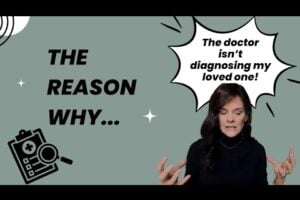Most neurologists provide face-to-face care of neurology patients, many of whom have complex condition such as Alzheimer’s disease, epilepsy and Parksinson’s disease — diseases that require extensive evaluation and management. However, a revealing study published in Neurology, the medical journal of the American Academy of Neurology, finds face-to-face care by neurologists is severely undervalued by Medicare and reimbursed at a substantially lower rate than what Medicare pays doctors for performing tests and procedures.
Spending Time – The Critical Aspect
“Spending time understanding patient’s symptoms and performing a detailed examination are the critical aspect of neurology — nothing else is more important,” states study author Kevin A. Kerber, MD, of the University of Michigan Health System and a member of the American Academy of Neurology. “There are new policies that incentivize this work for physicians, but these policies specifically exclude neurologists — which could be a big missed opportunity to improve neurologic care in the United States.”
The study reviewed all Medicare payments to neurologists in a single year, based on physician payment data that was released publicly. The study found that 60 percent of Medicare payments to neurologists was for evaluation and management (E/M) services. Evaluation and management services are used in diagnosing complex conditions, selecting appropriate tests and treatments, and following up with patients with chronic conditions. E/M services are generally not reimbursed as highly as procedural services, which include performing or interpreting tests or conducting procedures, such as taking a biopsy.
Dementia Books & Videos on Amazon:
FREE Newsletter:
Emphasis on the history, talking to patients, and examination
“We wanted to use this Medicare data to assess whether neurologists should be considered E/M-based doctors or procedure-based doctors. These data were very clear that neurologists are E/M-based providers — which fits well with the neurology community’s longstanding emphasis on the history, talking to patients, and examination. Exactly why neurologists were not included but some other specialties were is not clear.”
Neurologists receive a higher proportion of their payments from E/M services than surgical specialties, which had a range of 9 percent to 51 percent of payments from E/M services, but a lower proportion than primary care providers, which had about 85 percent of payments for E/M services.
Payment Imbalances
“… a provider who refers their patient to a neurologist for their expertise could receive a higher payment for the service than the neurologist — even if the neurologist takes more time on the history and examination, and improves the patient’s symptoms,” said Kerber. “I’m not sure we want these imbalances in payments per service.”
Kerber noted that a previous study showed that the demand for neurologists is growing as an aging population increases the rate of diseases such as dementia and stroke. “Estimates suggest that the US could use 11 percent more neurologists right now, and that shortfall is projected to grow to 19 percent by 2025,” Kerber said.
The current study found that the median neurologist received nearly 75 percent of Medicare payments from E/M services. More than 20 percent of neurologists received all of their Medicare payments from E/M services. Neurologists made up 1.5 percent of all providers, and received 1.8 percent of all payments.
- An AAN employee was a co-author on the study, but the study was not sponsored by the AAN. Neil A. Busis, the editorial author, is a member of the AAN Board of Directors.
SOURCE:
Reference:
- L. E. Skolarus, J. F. Burke, B. C. Callaghan, A. Becker, K. A. Kerber. Medicare payments to the neurology workforce… Neurology; DOI:10.1212/WNL.0000000000001515












There’s no bigger blessing for a person who is ill than to have another person in their life who spends the time talking to them to know and understand the details of life with the patient’s illness.
No! America does not stand up to the principles of spending the time needed to assist their patients as a whole in my opinion!
Neurologists need to be credited for the time they spend with us face to face. I have a mild but complex set of epileptic syndrome, non-amnesiac cognitive changes, low blood pressure, with atypical parkinsonianism. I have young onset Alzheimer's disease family history proven by autopsy. Without the one on one time with a neurologist who had treated my mother we would not have discovered treatable seizure activity & I would be having damaging seizures by now. Instead I am stable with very mild cognitive impairment. I am concerned for the many with mild changes who never get to see a neurologist at all.